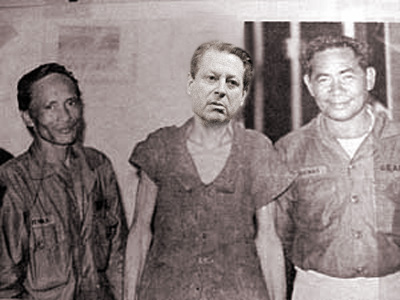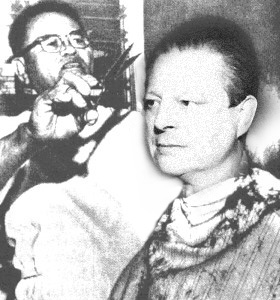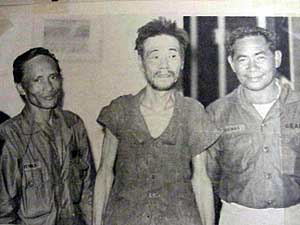You be the judge of whether the conflict is real.
Our comments are bold and in brackets.
Series of missteps by climate scientists threatens climate-change agenda
By Juliet Eilperin and David A. Fahrenthold
Washington Post Staff Writer
Monday, February 15, 2010; A01
With its 2007 report declaring that the “warming of the climate system is unequivocal,” the U.N. Intergovernmental Panel on Climate Change won a Nobel Prize — and a new degree of public trust in the controversial science of global warming. [This is mere assertion to enhance Eilperin’s ensuing narrative. What is the evidence that the IPCC or the Nobel Prize committee built public trust in the hypothesis of manmade global warming during 2007? Are we to assume that the mere fact of these pronouncements bolstered public opinion?]
But recent revelations about flaws in that seminal report, ranging from typos in key dates to sloppy sourcing, are undermining confidence not only in the panel’s work but also in projections about climate change.[The 2035 date in glaciergate is not a mere “typo” nor is it the product of “sloppy sourcing.” 2035 was the actual date trumpeted by the IPCC for Himalayan glacier melting, although there was no scientific data, study or analysis to support it. Similarly, the claim that global warming would destroy 40% of the Am azon rainforest was based not on a study but on an article on forest fires in an activist group magazine.] Scientists who have pointed out problems in the report say the panel’s methods and mistakes — including admitting Saturday that it had overstated how much of the Netherlands was below sea level — give doubters an opening. [Earth to Eilperin: Skeptics have been pointing out these very same problems (e.g., since 1999 on the Himalayan glaciers) — but of course, you’ve been too busy promoting the alarmist narrative to pay attention.]
It wasn’t the first one. There is still a scientific consensus that humans are causing climate change. [A consensus about CO2? Among who?] But in the past year, a cache of stolen [What is the evidence that they were “stolen” versus, say, leaked? Were the Pentagon papers “stolen”?] e-mails, revealing that prominent climate scientists sought to prevent the publication of works by their detractors, has sullied their image as impartial academics. The errors in the U.N. report — a document intended to be the last nail in the coffin of climate doubt — are a serious problem that could end up forcing environmentalists to focus more on the old question of proving that climate change is a threat, instead of the new question of how to stop it. [No matter what information is produced, Eilperin simply cannot imagine that climate alarmism is more fantasy than fact. Juliet, is there any fact that could change your mind about global warming — or are your views set in stone?]
Two Republican senators who have long opposed a cap on carbon emissions, James M. Inhofe (Okla.) and John Barrasso (Wyo.), are citing the errors as further reasons to block mandatory limits on greenhouse gas emissions. Last week, Barrasso called for an independent probe into the IPCC, suggesting that the United States should halt any action on climate until it verifies the panel’s scientific conclusions. [Eilperin: Verification = Heresy]
Inhofe said Thursday in the Senate that the Environmental Protection Agency’s efforts to curb greenhouse gases should be reexamined, since the U.N. panel’s conclusions influenced the agency’s finding that climate change poses a public threat. “The ramifications of the IPCC spread far and wide, most notably to the Environmental Protection Agency’s finding that greenhouse gases from mobile sources endanger public health and welfare,” Inhofe said. On Friday, a coalition of conservative groups filed a petition to overturn the EPA’s finding on the same grounds.
“There is a sense that something’s rotten in the state of the IPCC,” said Richard H. Moss, a senior scientist at the Joint Global Change Research Institute at the University of Maryland, who has worked with the panel since 1993. “It’s just wildly exaggerated. But we need to take a look and see if something needs to be improved.” [“Wildly exaggerated”? Exactly what has the IPCC ever been right about? Yesterday, Climategate’s Phil Jones’ admitted there’s been no warming since 1995, despite ever-rising CO2 emissions. It seems the “exaggeration” is on the alarmist side.]
The IPCC climate assessments are, by any standard, a massive undertaking. Thousands of scientists across the globe volunteer to evaluate tens of thousands of academic documents and translate them into plain-English reports that policymakers can understand. [Eilperin: Massive Undertaking = Too difficult to be expected to get right]
Climate researchers say the errors do not disprove the U.N. panel’s central conclusion: Climate change is happening, and humans are causing it. [How does this square with no warming since 1995?] Some researchers said the U.N. panel’s attitude — appearing to promise that its results were infallible, and reacting slowly to evidence that they were not — could undermine the rest of its work. [What specific part of their work is correct, Juliet?]
“What’s happened here is that there’s an industry of climate-change denialists who are trying to make it seem as though you can’t trust anything that is between the covers” of the panel’s report, said Jeffrey Kargel, a professor at the University of Arizona who studies glaciers. “It’s really heartbreaking to see this happen, and to see that the IPCC left themselves open” to being attacked. [Are you a denialist if you say there’s been no warming since 1995? Is Phil Jones, then, a denialist? Are you a denialist if you say the Himalayan glaciers won’t melt by 2035? Does that make IPCC chief Rajendra Pachauri a denialist? What “industry” of denialists? Is there also an “industry” — a multi-billion dollar one at that — of alarmists?]
Kargel said he noticed an error in the report of the IPCC’s second working group, a research unit, in 2007. The report said huge glaciers in the Himalayan mountains might disappear by 2035. Some glaciers are melting, but they are too enormous to disappear that quickly: “It’s physically impossible to kill the ice that fast,” Kargel said.
He said colleagues regarded the error as too ridiculous to fuss about until recently. [FYI, the “too ridiculous” Himalayan glacier error was cited in Senate testimony or mentioned by various senators numerous times in 2009 to justify global warming as a national security issue.] Last month, the journal Science printed a letter to the editor that traced the origins of the mistaken data: The U.N. panel seemed to have quoted an activist group’s report, not a peer-reviewed study. And, in citing another source, it appeared to have committed a serious typo: The year 2350 had become 2035. [IPCC chief Pachauri new of the problem but opted to remain silent.]
Another line that has sparked scrutiny reads, “Up to 40 percent of the Amazonian forests could react drastically to even a slight reduction in precipitation,” and links to a report co-written by the World Wildlife Fund. The analysis cited key work by Woods Hole Research Center senior scientist Daniel C. Nepstad, but the link to an advocacy group instead of a peer-reviewed paper infuriated conservatives. [The work was about forest fires, not climate change.]
“The underlying science is certainly there, but the citation process the IPCC went through is sloppy. [The underlying science is where? Did Eilperin bother to ask?] There’s no other word for it,” said Doug Boucher, director of the Tropical Forest and Climate Initiative at the Union of Concerned Scientists. [UCS is an alarmist activist group. Where’s the balance?]
The IPCC did not respond to requests for comment. [Has the IPCC ever before failed to respond to a Washington Post inquiry? I bet not.]
Roger Pielke Jr., a political scientist and environmental studies professor at the University of Colorado, said that the U.N. panel could hurt its own public standing by not admitting how it exaggerated certain climate risks or connections, such as linking higher insurance payouts to rising temperatures when other factors are driving this trend. [“Could hurt”?]
“The idea that the IPCC can or should strive to be infallible is really not helpful,” Pielke said. “When errors and mistakes are inevitably found, the fall is that much further. . . . There’s a real risk that the public perception could swing [toward greater disbelief in climate science]. Even though the reality is that the science — the underlying science — hasn’t changed.” [Pielke makes a loaded comment: infallibility is an impossible standard for anyone or group. Still, the UN wants to manage the global energy supply through internationally binding carbon caps. Shouldn’t it at least make sure its claims match up with reality and are backed up by actual data and studies?]
The error about the Netherlands was in a background note in the 2007 report that said 55 percent of the country lay below sea level, but that figure included areas that were actually above sea level and prone to flooding. [Didn’t anyone in the Netherlands notice the error?]
U.N. Foundation President Timothy E. Wirth, whose nonprofit group has highlighted the work of the IPCC, said that the pirated e-mails gave “an opening” to attack climate science and that the scientific work “has to be defended just like evolution has to be defended.” [Note how Eilperin attempts to elevate climate alarmism to evolution. But Wirth is just another science-hating alarmist. He once said, “We’ve got to ride this global warming issue. Even if the theory of global warming is wrong, we will be doing the right thing in terms of economic and environmental policy.”]
It is unclear whether the controversy will hamper passage of a bill to cap U.S. greenhouse gas emissions, which has stalled in the Senate. [Is Eilperin actually suggesting that Climategate is having no effect?] Paul W. Bledsoe, of the bipartisan National Commission on Energy Policy, said that if people want to know why the “bill is having a hard time in the Senate, I would rank [concern about climate science] lower than the economy and the financial meltdown.” [The NCEP is a yet another alarmist group that favors cap-and-trade. What would you expect it to say?]
Scientists are debating whether they need to revamp the IPCC process or scrap it. The journal Nature published an opinion section Thursday in which several researchers floated ideas on how to change the U.N. panel, along with a piece written by Moss and others showing how scientists could increase collaboration across disciplines to produce more accurate climate projections more quickly. [Since none of its climate projects have been at all accurate, what does “more accurate mean?”]
And Christopher Field — co-chair of the second working group for the IPCC’s next assessment — said the panel needs to improve its fact-checking, even if it means enlisting report contributors’ students to help do the job. [Terrific, so in the future, the IPCC will be able to blame students.” BTW, how about that fact of no warming since 1995? Do we have to wait for the students to check that?]
“My goal is to produce a report that’s 100 percent error-free, to the maximum extent possible,” he said. “The fact that the IPCC runs on volunteer labor makes it a challenge, but it’s too important a challenge to ignore.” [So maybe its a good idea to wait on the policy until the IPCC can do that? Did anyone make that suggestion? Did it occur to Juliet to ask it?]
Note that this article contains NO comments from the skeptics. I know Eilperin knows who we are and I know she knows how to get a hold of us. So what’s the deal? Throw your readers a bone… or would that ruin the alarmist narrative?



